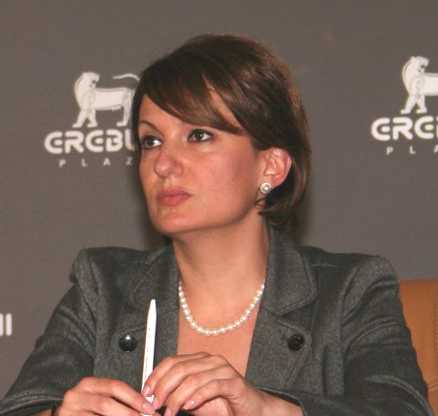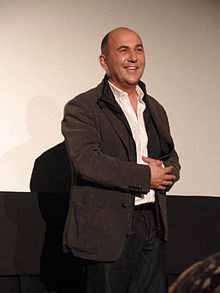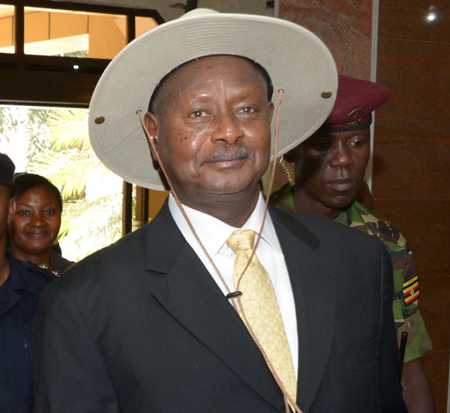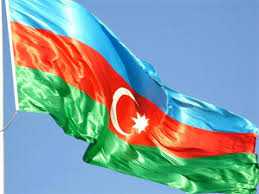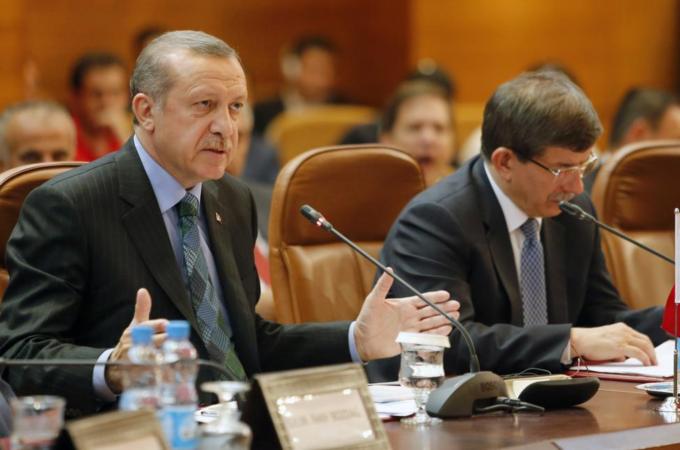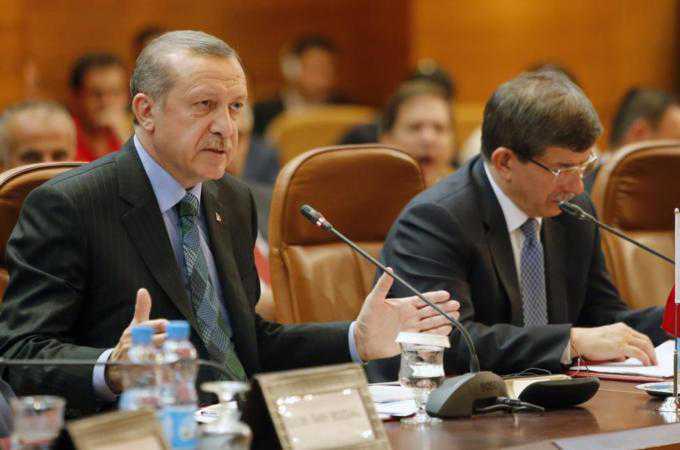Posted by Bulent Atalay of Author, National Geographic Books;
author, Smithsonian Books; Prof. UMW, Adj Prof UVA. on December 10, 2013
: “The new statue of Atatürk represents the first public monument in the United States honoring one of the towering figures of the 20th century.”
On December 5, 2013 Nelson Mandela died, one of the most successful fighters for social justice in history. Cut from the same cloth as Mahatma Gandhi, he helped to liberate his nation from racial and colonial oppression, and went on to unify his nation. Mandela had started his decades of struggles as a militant, though not a military hero, but embraced peace and healing in his mature years. Standing in front of the South African Embassy in Washington is a powerful bronze statue of Nelson Mandela, his right hand stretched upward in a clenched fist, symbolic of the fight that he had carried on the better part of his life. Mandela’s statue was unveiled on September 21, 2013 by his grateful nation.
A month ago on November 10, the Atatürk Society of America (ASA) unveiled a full-sized bronze statue of Kemal Atatürk. Located on the periphery of Sheridan Circle, next to the Turkish Ambassador’s Residence at 1606 23rd Street, NW, Washington, DC, this is the first public monument in the United States honoring the greatest Turk of them all. Its timing coincides with both the 90th Anniversary of the founding of the secular Republic of Turkey in 1923 and the 75th Anniversary of Atatürk’s death on November 10, 1938. He too had liberated his nation — first from occupying foreign troops and then from centuries of backward Caliphate Rule. He wanted his new democratic republic to face westward — adopt a secular system of governance with full gender equality — and he launched reform after reform that brought his nation into the 20th Century.
A full-size statue of Atatürk already stood on the grounds of the Turkish Embassy at 1625 Massachusetts Avenue, but it was not readily accessible to the public, standing on raised ground behind a massive wrought iron fence surrounding the embassy. Moreover, it was in the style of Eastern European heroic statuary, made of fiberglass, and over-painted in bronze tones. The ASA thought that Atatürk deserved better. The Turkish-American architect Nuray Anahtar drew preliminary plans for the new statue to be placed at the center of a semicircular balustrade surrounding an indentation in the wall of the Turkish Ambassador’s Residence. And she nimbly carried the applications for permits through meetings with a plethora of city officials — the Advisory Neighborhood Commission, the DC Board for Public Spaces, and the Historic Preservation Commission. What made the site unique was its location squarely on DC public space donated for the statue by the City. As such, the statue represents the first public monument in the United States honoring one of the greatest leaders of the 20th century.
The consensus of the Board of the Atatürk Society was to have Kemal Atatürk depicted in a timeless realistic style and cast in bronze. The Board had to decide the age at which to depict Atatürk — as a young military officer struggling with battle strategy and wearing a uniform replete with a “kalpak” (a sheepskin fez); as the new President of the Secular Republic that he founded, and still wearing a fez; or as the mature statesman in the early 1930s, svelte, but an elegant modern man. There was consensus in the Committee’s decision: he would be depicted as a thoroughly modern man, determined and exuding the legendary confidence that had defined him in life. For Turks, images of Atatürk are embedded deep in their marrow. They have all spent their lives communing with images of Atatürk, and although they might have their own favorite visions of the man, they can immediately assess whether an image produced by an artist even resembles him. Finally, the finished product had to be produced in record time.
JEFFREY HALL, SCULPTOR
A small list of four talented sculptors was drawn up as candidates to be considered for the commission: one in Azerbaijan; another in Salt Lake City, Utah; and a pair of young local artists whose names were provided by Lindy Hart, the widow of Frederick “Rick” Hart” (1942-1999), one of the great sculptors of the last quarter of the 20th century. Rick Hart had carved the Tympanum, including his masterpiece, the “Ex Nihilo,” above the Western Entrance of the National Cathedral. Then a few years later, he had created the bronze statue of the “Three Soldiers” at the Vietnam Memorial, the full complex standing in the shadow of the Lincoln Memorial. The statue of the soldiers is a realistic and extraordinarily powerful portrayal of three heavily armed soldiers trudging through the jungles of Vietnam. The two younger candidates had both worked for many years as Rick Hart’s assistants.
Jeff Hall is seen working on the 34″ clay model of the statue, with the original 12″ maquette in the background, and the bust on the right.
Deciding to go with one of the two younger sculptors turned out to be a crucial decision. Jeffrey L. Hall lived no farther than one-hour’s distance from Washington, and he insisted that he could produce the finished piece in roughly six months. The committee came to realize quickly that he was always open to suggestions, and always willing to make changes, no matter how drastic. A few of the members made at least a dozen visits to Jeff’s studio in rural Virginia to oversee the work in progress and to offer new suggestions. Rick Hart’s comment that Jeff’s “…quality of work rivals any in history,” became a source of confidence, tempering the fear of the well-worn aphorism, “A camel is a thoroughbred designed by a committee!” Jeff knew nothing about Atatürk before he started working on his initial clay model, a 12” high maquette. But as he immersed himself in the hundreds of photos, and even old films that captured his subject’s general demeanor and movement, he became as familiar with Atatürk’s deportment as any Turk. “The Incredible Turk,” a 1958 documentary narrated by Walter Cronkite, was especially useful for this purpose. The maquette was then rescaled to a 34” tall clay model. In this second redaction, the subject’s stance could be modified in rescaling it again to a full 6’7” model. Simultaneously, Jeff started working on a full-size bust that would be integrated into the final statue.
Left: The cast bronze arms, before they are welded to the statue. Center: the details of book, “Nutuk,” in the statue’s left hand. Right: Wingtip shoes introduced in the early 1930s, known to have been worn by Atatürk.
After the full-size clay model is prepared, molds are created of the separate components: the bust, the arms, the torso… Molten bronze is then poured into the molds, before the components are welded together. In the photo above, a worker in the Lara Bronze Foundry in Philadelphia is seen painting on the patina and curing it with the heat of a blow torch.
As the author of a pair of books on Leonardo da Vinci (“Math and the Mona Lisa,” Smithsonian Books, 2004) and “Leonardo’s Universe” (National Geographic Books, 2009) I could bring suggestions based on my knowledge of the Renaissance genius’s own words. Leonardo, in painting “The Last Supper,” had emphasized the importance of the hands, “The subject should speak with his hands as much as with his facial expressions.“ From the beginning I frequently spoke about Leonardo’s dictum regarding the importance of the hands. In Jeff’s statue Atatürk is depicted as a reformer/teacher, giving a speech. In his left hand he is holding a heavy book with the title “Nutuk” (“The Speech”). The book is resting on his hip, but with his index finger he is holding his place in the book. The right hand captures the electric moment when he has paused to make a point with his index finger, the intensity dramatized by the bulging veins in his hand.
In the plaster cast made from the original mode, the sculptor has conveyed the illusion of light colored eyes by making the irises especially shallow.
Among other details, Jeff captures Atatürk’s “renkli gözleri” (his blue-gray eyes) in a dark bronze statue. The illusion of light colored eyes, in distinction to those with dark color, is achieved by making the irises much shallower than they would otherwise be in depicting a subject with dark eyes. (Among the accompanying photos, a white plaster bust, cast directly from the mold for the bronze, reveals this trick.) Another subtle detail that few visitors would be expected to recognize is the direction of the stripes on Atatürk’s tie. Mathematically speaking, these stripes display “negative slope” (lower right-to-upper left). This style of stripe is known as the “American Stripe.” In distinction, the European (and other non-American) striped ties usually display positive slopes (lower left-to-upper right). In examining photos of Ataturk wearing ties, we found that his ties of choice had the American Stripe. One can only speculate about his personal collection of ties being presented to him by the American Ambassador in Ankara, or perhaps one of the Turkish Ambassadors who once occupied the Embassy in Washington. The details of the statue also include the chain for his pocket watch, draped naturally in a parabola across his vest, and in homage to his military days, his medal, partially covered by his right lapel. Standing next to the 6’7” bronze statue, perched on a 3” bronze base, one can sense Atatürk’s figure exuding that abstract quality described in Turkish as, “heybetli,” an unmistakable heroic presence.
In a day when genuinely great statesman seem to be rare, when a priestly class (whether clerics in Iran, rabbis of the ultra-Orthodox in Israel, or fundamentalists preachers in the United States) endorses taking one side or another in endless internecine warfare, it might be good to remember a couplet written by the English poet William Blake (1757-1827): “Mysteries will never cease; the Priest clamors for war, and the soldier peace.” He could not have been more prescient, or more accurate, in describing Atatürk. The unrivaled military tactician and strategist, who was undefeated in the military campaigns that had consumed the first three decades of his life, became the greatest proponent for peace once he established the Republic of Turkey. On the balustrade surrounding Atatürk’s statue, are his words in bronze lettering, “Peace at home… Peace in the World.” This is also reminiscent of the late Mr. Mandela.
Gutzon Borglum’s equestrian statue, of General Sheridan (left). Borglum’s “Heads of Presidents” at Mount Rushmore in South Dakota.
SHERIDAN CIRCLE
The address, Sheridan Circle, is at the top of any short list of prime real estate in Washington, with the Embassy Row of Massachusetts Avenue radiating east and west from the circle. Several embassies line the rim of the circle. Along with the former Turkish Embassy (now the Ambassador’s Residence) there is the Romanian Embassy on the southern side, the Greek Embassy on the northeast, and the Embassy of Pakistan on the northwest. In front of several of the embassies stand statues of prominent statesmen, including Greece’s early 20th century Prime Minister, Eleftherios Venizelos, whose armed forces had fought Turkey until 1922, and who nominated Kemal Atatürk for the Nobel Peace Prize in 1934. A statue of Gandhi stands a quarter mile to the east, and the statues of Churchill and Mandela facing each other stand a mile to the west of Sheridan Circle. The centerpiece of the circle, however, is an equestrian statue of the Union General Philip Sheridan, for whom the circle is named. The equestrian statue, weathered naturally to a green patina during the 105 years it has stood at the site, is extraordinarily beautiful in its own right. The sculptor of the statue, Gutzon Borglum, is far better known as the sculptor of the heads of Presidents at Mount Rushmore in South Dakota. The most recent of the four was Theodore “Teddy” Roosevelt, the 26th President, a good and colorful leader, but one who does not rise to the stratospheric prominence achieved by the other three. For Teddy Roosevelt, the timing was right. He was the reigning President when the monument was created, he was unusually fond of the West, and he was a friend of the sculptor.
The other three — Washington, Jefferson, Lincoln — are unrivaled as the greatest among the 44 Presidents in the history of the United States. The First President, General George Washington, unfaltering military leader who ultimately defeated the British, stands as the “Father of the Nation,” The third President, Thomas Jefferson, a brilliant theorist and political writer, authored the Declaration of Independence. Jefferson also strongly believed that religion was a personal choice that should be free from government interference. Then there is Abraham Lincoln, the sixteenth President, who held the United States together during the dark years of the Civil War. He authored the Emancipation Proclamation. Each member of this iconic trio is honored with an impressive architectural edifice in the city, his own National Monument.
Atatürk embodies the greatest assets of Washington, Jefferson, and Lincoln — military strategist par excellence; social, educational and economic reformer; statesman — Father of his Country — the man the distinguished professor of psychiatry, Arnold Ludwig, in his 2002 book, “The King of the Mountain,” ranked Number One among all 2300 national leaders of the 20th century.
In the waning days of the 20th century, the Editors of Time Magazine, accustomed to selecting the “Individual of the Year,” found themselves saddled with the difficult task of selecting the “Individual of the Century.” Turks expressed their exuberance by the thousands in nominating Atatürk for the honor. The editors must have reasoned first that this was a concerted effort organized in Ankara or Istanbul. Then they must have felt, Atatürk was indeed a towering figure of the 20th century, but that his influence had been limited to a small sector of the planet. Accordingly, they must have felt compelled to eliminate him from the top spot. But others in the running, both good and bad, included FDR, Churchill, Mao Zedong and Hitler… Finally, Time Magazine announced its choice for the “Individual of the Century.” It would be Albert Einstein, symbolic of science in the Century of Science. As a physicist, I was surprised, but ultimately sanguine, regarding Time’s choice. As Einstein once remarked, “Politics are temporary, but equations [describing the laws of nature] are forever.”
Three of the foregoing finalists expressed private sentiments about Atatürk:
“My sorrow is that, it is no longer possible to fulfill my strong wish to meet this great man.” — Franklin D. Roosevelt
“The death of Atatürk, who saved Turkey during the war and revived the Turkish nation, is not only a loss for his country, but it is also a great loss for Europe…” — Winston Churchill
“Your nation produced the greatest leader of the century!” — Albert Einstein. (To Turkish graduate student, Münir Ülgür, at Princeton. Helen Dukas, who served Einstein as his secretary for 25 years, also mentioned Einstein’s long held sentiment regarding Atatürk to me at the Institute for Advanced Study in 1974.) See also ”Einstein’s Letter to Ataturk’s Turkey”
References and Acknowledgements:
• Walter Cronkite, The Incredible Turk (in the series, the 20th Century, 1958).
• Click on the following link to view the “lost wax method” employed in the Creation of the Atatürk Statue
• Peace loving Turks in America can thank Hudai and Mirat Yavalar, Founders of the Ataturk Society of America, for commissioning the statue of Atatürk. I would strongly recommend a visit to the statue.
Flanking the 6’7″ clay model of Atatürk’s statue from left to right: Sculptor Jeff Hall, Hudai and Mirat Yavalar (Founders of ASA), Bulent and Carol Jean Atalay at the artist’s studio.
Keywords: Abraham Lincoln Albert Einstein Ataturk George Washington Gutzon Borglum Jeffery Hall Mandela Sheridan Circle Thomas Jefferson Washington
